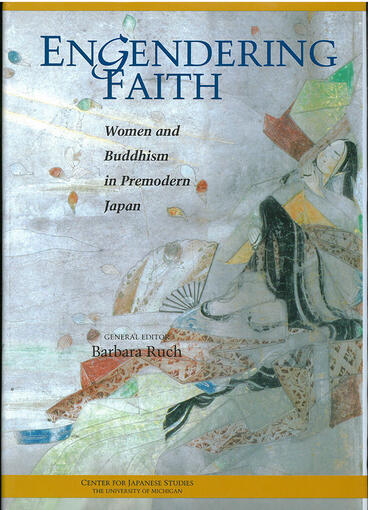Engendering Faith
Women and Buddhism in Premodern Japan
A monumental and pioneering study on women and Buddhism.
Description
For many years, students of China, Korea, and Japan were taught virtually nothing about Asian women in institutional religion. What were women’s spiritual expectations of themselves? Who were the women initiators, patrons, and ecclesiastical leaders in the formative years of Buddhism in Japan? What were their activities throughout the medieval centuries? Japanese philosophy and religion seldom asked these questions, instead maintaining research methods and approaches that were fated to carve out a history nearly devoid of women. In the twenty-first century, it is crucial that we reconstruct the curriculum of exclusively androcentric religious texts from the experience, practices, religious views, and history of women in religion. Engendering Faith is a monumental and pioneering study on women and Buddhism. Collecting twenty contributions into five thematic sections, it brings new research on women and Buddhism to English-speaking scholars of Japan, religious history, and women’s studies. A set of prefatory articles translated and written by Barbara Ruch provide a literature review, historical context, an overview of contributions, and an introduction. Richly illustrated and with a comprehensive list of characters, Engendering Faith is essential reading for anyone interested in premodern Japanese history, culture, and religion.
Barbara Ruch is Professor Emerita of Japanese Literature and Culture at Columbia University and Director of the Institute for Medieval Japanese Studies.
Reviews
"This volume brings together genuinely original scholarship that has emerged from the pioneering efforts of Japanese and Western scholars and two groups: the Research Group on Women and Buddhism in Japan, organized by Professors Nishiguchi Junko and Ôsumi Kazuo, and the Institute for Medieval Japanese Studies, directed by Professor Barbara Ruch. These studies address long-neglected questions about the roles of women in Japanese Buddhism and represent the welcomed first steps toward disclosing 'the other half of Buddhist history.' Much remains to be done, but the ground has now been broken and a strong foundation laid by the interdisciplinary studies presented in this important volume. Barbara Ruch is to be commended for her vision and her devotion to this project."—Laurel Rasplica Rodd, University of Colorado, Boulder
"A significant and groundbreaking contribution to the fields of Buddhology, Japanese religion, and broader cultural studies. . . . An exquisitely produced volume.."—James L. Ford, Journal of Japanese Studies
"A major contribution to the field of Japanese religious history.."—Gaynor Sekimori, International Journal of Asian Studies

